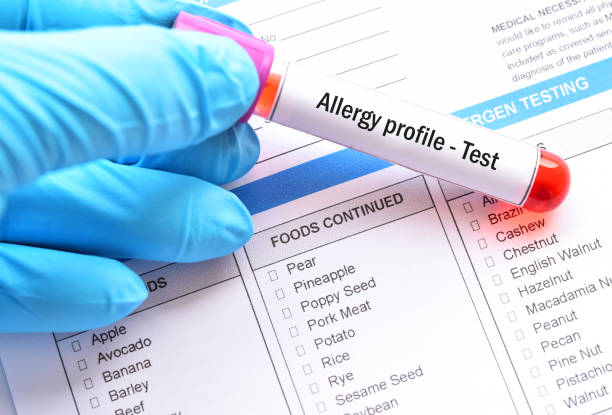A Comprehensive Guide to Allergy Testing: Understanding Your Body's Reactions
Allergies are a common and often frustrating health issue that can significantly impact our daily lives. Whether it's a runny nose during pollen season, hives after eating certain foods, or a sudden rash from a skincare product, allergies can cause discomfort and inconvenience. However, with the right information and testing, you can identify your allergens and manage your symptoms effectively. In this comprehensive guide, we'll explore the world of allergy testing, its importance, types of tests available, and what to expect during the process.
Chapter 1: What Are Allergies?
Before diving into allergy testing, it's crucial to understand what allergies are. Allergies are the result of an overreactive immune system responding to substances that are generally harmless. These substances, known as allergens, can trigger various symptoms when they come into contact with the body. Common allergens include pollen, pet dander, certain foods, insect stings, and even medications.
Chapter 2: The Importance of Allergy Testing
Allergy testing plays a vital role in diagnosing and managing allergies. Knowing your specific allergens allows you to take proactive steps to avoid them and reduce your risk of allergic reactions. Additionally, allergy testing can help healthcare professionals determine the most appropriate treatment, whether it's allergen avoidance, medication, or immunotherapy.
Chapter 3: Types of Allergy Tests
1. Skin Prick Test: This is one of the most common allergy tests. A small amount of allergen is applied to the skin, and then a tiny needle is used to prick or scratch the surface. If you're allergic to that substance, you'll develop a small, itchy bump within 15-20 minutes.
2. Blood Tests : Blood tests measure the level of specific antibodies (IgE) produced in response to allergens. These tests are helpful for identifying allergens when skin tests are impractical or for individuals with skin conditions that may interfere with skin testing.
3. Patch Testing: Patch tests are often used to diagnose contact dermatitis caused by substances like metals, fragrances, or certain skincare products. Small amounts of potential allergens are applied to patches and placed on the skin for 48 hours.
4. Elimination Diet: In cases of suspected food allergies, an elimination diet may be recommended. This involves removing certain foods from your diet and then gradually reintroducing them to identify the culprit.
Chapter 4: Preparation and What to Expect
Before undergoing allergy testing, it's essential to consult with an allergist or immunologist who can help you determine which tests are appropriate for your symptoms. They will also provide guidance on any necessary preparation, such as discontinuing antihistamines before skin testing.
During the testing process, you can expect minimal discomfort, whether it's the mild pricking sensation of a skin test or a simple blood draw. The results may take a few days to process, and your healthcare provider will discuss them with you.
Chapter 5: Interpreting Allergy Test Results
Understanding your allergy test results is crucial for effective management. Positive results indicate that you are allergic to specific allergens, while negative results suggest no allergic reaction. Your healthcare provider will help you interpret the results and develop a personalized allergy management plan.
Chapter 6: Allergy Management and Treatment
Once you know your allergens, you can take steps to manage your allergies effectively. This may include allergen avoidance, prescription or over-the-counter medications, immunotherapy (allergy shots or sublingual drops), and lifestyle modifications.
Conclusion:
Allergy testing is a valuable tool for anyone dealing with allergies. It empowers individuals to take control of their health by identifying specific allergens and developing strategies to manage symptoms. If you suspect you have allergies or have experienced allergic reactions, consult with an allergist or immunologist to determine the most appropriate testing method for your situation. Remember that knowledge is the first step towards a life with fewer allergic reactions and greater comfort.

